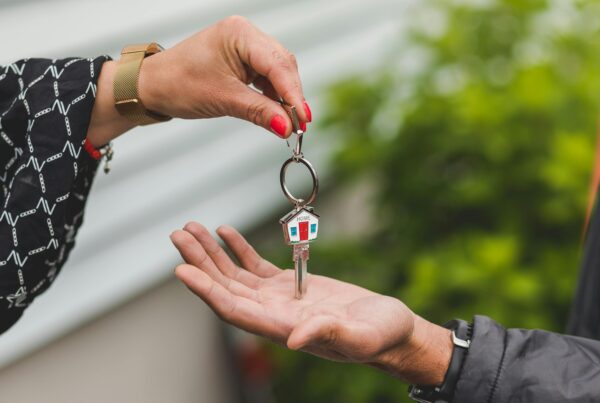A first-time homebuyer has a lot to learn before they’re ready to apply for a loan, and this includes what kinds of fees they may pay if they opt for conventional Fannie Mae or Freddie Mac loans.
One of these is the loan-level pricing adjustment, which is imposed on borrowers with low FICO scores seeking mortgages through conventional loan programs. We’ll discuss the adjustment loan purpose, how it is calculated, and what you can do if you find yourself having to pay a Loan Level Pricing Adjustment (LLPA) fee.
What is Loan-Level Price Adjustment (LLPA)?
Loan-level pricing adjustments (LLPAs) are additional fees imposed by Fannie Mae and Freddie Mac, the government-sponsored entities tasked with guaranteeing mortgages. They are a one-time payment incorporated into closing costs.
LLPA fees are charged to mortgage borrowers with multiple risk factors, such as low credit scores and/or a high loan-to-value ratio.
-
The Purpose of LLPAs
By requiring riskier borrowers to pay an LLPA fee, Fannie Mae and Freddie Mac reduce their risk and ensure that lenders recoup more of their losses should borrowers default. This helps equalize market conditions, helping keep mortgages affordable for everyone in the marketplace.
-
Who Determines LLPA Values?
Fannie Mae determines LLPA values, though these stipulations apply to products insured by either Fannie Mae or Freddie Mac.
LLPA Fannie Mae Factors
The LLPA cost is calculated based on several factors of a home buyer’s borrowing profile, such as:
-
Credit Score
Your FICO score is a significant factor, balanced with your LTV. These were adjusted in 2023 to better reflect current market conditions. You’ll pay a fee equal to the specific credit score bracket that you fall into and how much you put down on the mortgage. These brackets are now defined as:
- Credit score between 640–659 and 5% down: 1.5% LLPA
- Credit score between 740–759 and 20% down: 1% LLPA
- Credit score of 700–719 and LTV ratio of 85–90%: 1.25% LLPA
As you can see, your credit score and your LTV are combined to determine your loan level pricing adjustments for a primary residence.
-
Loan to Value (LTV)
Your loan-to-value ratio is the amount of your mortgage loan divided by the purchase price, which is typically close to the appraised value. Offering a large down payment reduces the LTV. If your loan balance is very high, such as 95%, you will likely be charged a Loan Level Pricing Adjustment (LLPA).
-
Occupancy Type
Occupancy type refers to the property’s use. All investment properties must be secured by an LLPA, while primary residences may not be charged one, depending on the borrower profile.
-
Number of Units
The more units that the property has, the more likely you are to be charged an LLPA, unless you provide a large down payment and have an excellent credit score.
It’s important to note that these four factors are cumulative. If you trigger only one condition, you will have lower loan-level pricing adjustments than if you trigger all four.
-
Debt-to-Income (DTI)
Before August 1, 2023, the debt-to-income ratio was a factor in determining whether mortgage borrowers would be charged LLPAs. They are no longer considered, though a high DTI may still disqualify you from a conventional mortgage loan.
Types of Loans Using Loan Level Pricing Adjustments
Only Fannie Mae and Freddie Mac loans are impacted by loan level pricing adjustments, as conventional mortgage loan products are sold on the secondary mortgage market.
These government-sponsored entities are not responsible for FHA, VA, or USDA loans. A separate entity, Ginnie Mae, is responsible for packaging those products for sale.
Government-backed loans are guaranteed by the departments that provide them, so they are inherently lower risk. Mortgage lenders know they will recoup at least some of their losses in the event of default.
Alternatives if You Have High Fees After Loan Level Price Adjustments
Non-conventional mortgages, known as government-backed loans, are a good option for those who may struggle to qualify for lower rates due to high LLPAs.
While you are not always guaranteed the same interest rate based on your borrowing profile, you can generally secure lower rates than you would if you seek out Fannie Mae-secured products.
-
FHA Loans
FHA loans are a great option for borrowers with a low credit score, as scores as low as 500 are still eligible, though they must put more down than those with a better FICO score. As with other mortgage products, higher credit scores also enable you to get the lowest rates.
The FHA program also provides assistance for those seeking to move out of HUD Section 8 housing and into their own homes.
-
VA Loans
VA loans are administered by the Department of Veterans Affairs and are intended for qualifying veterans.
There’s no down payment requirement in most cases, and borrowers can seek loan amounts above the FHA limits. Another benefit is that a VA buyer does not have to pay private mortgage insurance, even if they don’t put down 20%.
However, there are strict requirements to qualify, including time of service and your discharge status. You will need to apply for a Certificate of Eligibility that identifies whether you meet all the requirements. Our loan officers can guide you through this process and ensure that you’re ready to purchase your new home.
Summary
F5 Mortgage is here for you during every step of the buying process. We offer a variety of loan products, depending on your needs, including VA, FHA, investment, conventional fixed-rate, and adjustable-rate mortgages.
Contact us today to get started on your loan, or get a free quote using our convenient online tools. You can also check out today’s rates to get a clearer picture of what property you may be able to afford. We look forward to assisting you in your journey toward home ownership.
Loan Level Pricing Adjustments (LLPAs) FAQs
What Are LLPA Waivers?
An AMI LLPA waiver is offered to a first-time homebuyer who makes less than or equal to the area median income, or 120% of the AMI in high-cost areas. These waivers only apply to primary residences, and they cannot be used during the refinancing process.
To get a waiver, you’ll work with your loan officer, who will examine your income in relation to typical incomes in the area. If you qualify, they will submit a lender letter to Fannie Mae, who will then determine whether you are eligible.
If you are denied, there are other ways to reduce your expenses. A qualified professional at F5 Mortgage will assist you in identifying things like down payment assistance programs and grants that can ease the upfront financial burden.
How Is LLPA Calculated?
LLPA uses a mixture of borrower traits, including FICO score, property type, number of units, and loan-to-value ratio. Lenders then utilize a matrix to assess how much they will charge after considering each of these elements.
Does LLPA Affect Interest Rate?
Yes, because higher LLPAs show the lender that you are considered higher risk than a similar borrower. As such, you will likely be charged higher interest rates than someone with a better borrower profile, such as those with a higher credit score or less debt.
Do LLPAs Affect Refinancing?
They can affect certain borrowers, specifically those seeking cash-out refinances. However, you cannot apply for a waiver as you would if you were opening a new mortgage, even if you would otherwise be eligible.
There may be additional price adjustments imposed by your lender, but we can assist you in identifying all of these factors and ensure that you pay the lowest LLPA possible for your refinance.









Thank you for your sharing. I am worried that I lack creative ideas. It is your article that makes me full of hope. Thank you. But, I have a question, can you help me?
Thank you for your sharing. I am worried that I lack creative ideas. It is your article that makes me full of hope. Thank you. But, I have a question, can you help me?
I don’t think the title of your article matches the content lol. Just kidding, mainly because I had some doubts after reading the article.
Thank you for your sharing. I am worried that I lack creative ideas. It is your article that makes me full of hope. Thank you. But, I have a question, can you help me?
Thank you for your sharing. I am worried that I lack creative ideas. It is your article that makes me full of hope. Thank you. But, I have a question, can you help me?